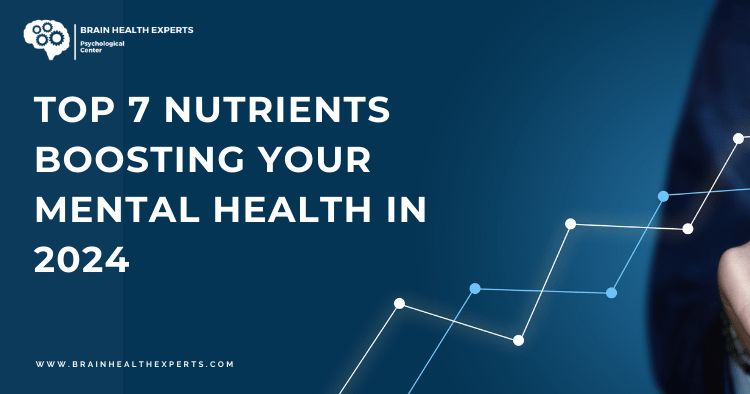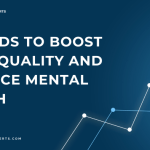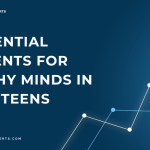Table of Contents
- Introduction
- 1. Mediterranean Diet
- 2. DASH Diet
- 3. Whole Foods Plant-Based Diet
- 4. Ketogenic Diet
- 5. Paleo Diet
- 6. Flexitarian Diet
- 7. Traditional Asian Diet
- Conclusion
- FAQs
Introduction
In recent years, mental health has gained significant attention, and researchers are uncovering the profound impact that diet can have on our psychological well-being. As we step into 2024, it’s the perfect time to explore how specific diets can enhance mental clarity, reduce anxiety, and improve overall mood. This blog post will present the top seven diets that can help you boost your mental health this year. Let’s dive in!
“Your diet is a bank account. Good food choices are good investments.” — Bethenny Frankel
1. Mediterranean Diet
The Mediterranean diet is celebrated not only for its physical health benefits but also for its positive impact on mental health. Rich in fruits, vegetables, whole grains, fish, nuts, and healthy fats like olive oil, this diet is full of nutrients that support brain function.
Key Benefits:
- Omega-3 Fatty Acids: Found in fish (like salmon), walnuts, and flaxseeds, omega-3s are essential for brain health and have been linked to reduced symptoms of depression.
- Antioxidants: The abundance of fruits and vegetables helps combat oxidative stress, a factor linked to mental disorders.
Research Findings:
A study published in the American Journal of Psychiatry found that individuals following a Mediterranean diet had a lower risk of developing depression. For more insights on the power of positive thinking and its role in mental health, check out this article on 10 ways positive thinking boosts physical health.
“Eating well is a form of self-respect.” — Anonymous
2. DASH Diet
Originally designed to combat high blood pressure, the Dietary Approaches to Stop Hypertension (DASH) diet also supports mental well-being. It emphasizes fruits, vegetables, low-fat dairy, whole grains, and lean proteins.
Key Benefits:
- Nutrient-Rich Foods: The focus on diverse, nutrient-packed foods helps regulate mood and cognitive function.
- Low in Saturated Fats: This can lead to improved brain health and a reduction in mood disorders.
Research Findings:
A study in Psychosomatic Medicine indicated that those adhering to the DASH diet experienced lower rates of depression. Explore more about how positive thinking techniques can reduce stress in the 10 positive thinking techniques to reduce stress.
3. Whole Foods Plant-Based Diet
A whole foods plant-based diet excludes animal products and processed foods, focusing instead on whole grains, legumes, vegetables, fruits, nuts, and seeds. This diet is not only beneficial for physical health but also plays a crucial role in mental health improvement.
Key Benefits:
- High Fiber Content: Fiber-rich foods help regulate blood sugar and promote gut health, both of which are linked to mood stability.
- Nutrient Density: Packed with vitamins and minerals that support neurotransmitter function.
Research Findings:
A systematic review published in Nutrients highlighted the connection between plant-based diets and reduced symptoms of anxiety and depression. Discover more about powerful affirmations to boost mental health today in this article: 10 powerful affirmations to boost mental health today.
“Let food be thy medicine and medicine be thy food.” — Hippocrates
4. Ketogenic Diet
The ketogenic diet, which is high in fats, moderate in protein, and very low in carbohydrates, has gained popularity for its weight loss benefits but is also being recognized for its mental health advantages.
Key Benefits:
- Brain Fuel: The body produces ketones from fat, which serve as an efficient energy source for the brain.
- Stabilizes Mood: Some studies suggest that a ketogenic diet may help stabilize mood and reduce anxiety.
Research Findings:
A study published in Neuropsychobiology found that ketogenic diets could help improve mood disorders and cognitive functions. For insights on managing anxiety, check out 10 effective techniques to manage anxiety in daily life.
5. Paleo Diet
The Paleo diet promotes eating foods presumed to be available to our Paleolithic ancestors, including meat, fish, fruits, vegetables, nuts, and seeds, while avoiding processed foods, grains, and dairy.
Key Benefits:
- Nutrient-Rich: Emphasizes whole foods that are high in nutrients, which are essential for optimal brain function.
- Reduced Inflammation: May help decrease inflammation in the body, which is linked to various mental health issues.
Research Findings:
While direct studies on the Paleo diet and mental health are limited, its emphasis on whole foods aligns with findings that suggest whole foods are beneficial for mental well-being. Learn about how positive thinking fuels personal growth in 10 ways positive thinking fuels personal growth journey.
“The food you eat can be either the safest and most powerful form of medicine or the slowest form of poison.” — Ann Wigmore
6. Flexitarian Diet
The Flexitarian diet is a flexible approach that encourages mostly plant-based foods while allowing for occasional meat and fish consumption. This balance can lead to improved mental health without strict dietary restrictions.
Key Benefits:
- Diverse Nutrient Intake: A wide variety of foods means a broader range of nutrients that support brain health.
- Sustainable Eating: This diet promotes a sustainable lifestyle, which can lead to reduced stress levels.
Research Findings:
Studies have shown that diets rich in fruits and vegetables can lead to improved mood and reduced anxiety levels. For more on boosting resilience through positive thinking, check 10 ways positive thinking boosts resilience in tough times.
7. Traditional Asian Diet
The Traditional Asian diet, which includes a variety of grains, vegetables, fish, and small amounts of meat, has been linked to numerous health benefits, including mental health improvements.
Key Benefits:
- Balanced Nutrition: Provides a balance of macronutrients and high levels of antioxidants.
- Fermented Foods: Includes fermented foods like kimchi and miso, which are beneficial for gut health and can enhance mood.
Research Findings:
Research in Nutrients indicates that traditional diets rich in fermented foods can lead to improved mental health outcomes. To see how positive thinking transforms daily life, check out 10 ways positive thinking transforms your daily life.
“Good nutrition creates health in all areas of our existence. All parts are interconnected.” — T. Colin Campbell
Conclusion
As we embark on the new year, prioritizing our mental health through diet can be a game-changer. Whether you choose the Mediterranean diet for its omega-3s, the DASH diet for its nutrient density, or any of the other diets mentioned, making conscious dietary choices can significantly enhance your mental well-being. Remember, it’s essential to consult with a healthcare professional before making significant dietary changes.
FAQs
1. Can diet really affect my mental health?
Yes! Research has shown that certain diets can influence brain chemistry, mood stability, and overall mental health.
2. How quickly can I see improvements in my mental health after changing my diet?
Improvements can vary, but many individuals report feeling better within a few weeks of adopting healthier eating habits.
3. Are there any foods I should avoid for better mental health?
Foods high in sugar, refined carbs, and unhealthy fats can negatively impact mood and mental well-being.
4. Can I combine these diets?
Absolutely! Many people find success in combining elements from different diets that work for them.
“Diet is the essential foundation of mental health.” — Anonymous
By incorporating these dietary strategies into your life, you can take a proactive step toward enhancing your mental health in 2024 and beyond!





